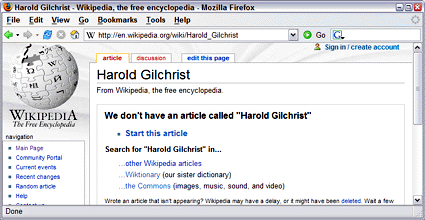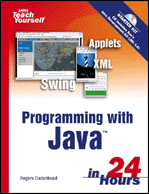UserLand Frees Up Manila Servers
UserLand Software is discontinuing free Manila hosting, as I discovered last week when one of their users sought refuge on Buzzword.Com. Edit This Page shut free service on Dec. 1 and ManilaSites will do the same Dec. 31.I can offer free hosting on Buzzword, but webloggers who are committed to publishing with Manila should be advised that I'm migrating the server to new software by May 1, 2006. A better long-term option for those folks is to subscribe to Weblogger.Com or UserLand.
(As an aside, if you're a fan of a long-running blog on one of those servers, this would be the ideal time to donate a year's hosting. Moving a weblog in a hurry is a huge pain in the ass.)
I've found in 18 months of running Manila that I'm genuinely bad at it. Server uptime has been lousy, because you have to know enough to counter the enormous amount of abuse that comment and referral spammers dish out on a weblog server hosting 3,000 users. Every month or so, I get another "it's not you, it's me" letter from a Buzzword user who wants to break up but is afraid to sound ingracious. The most recent were David Golding and Julian on Software, and I'm pretty sure that Craig Jensen wants to start seeing other people.
I have a fighting chance against net abuse on a Linux box running Apache, MySQL and PHP, because I've been hacking away on one for more than five years. I knew I had reached a significant milestone in my quest for m4d sk1llz last spring when Workbench survived 500,000 hits in two days.
Next year, Buzzword will become an ad-supported free weblog host running entirely on Linux and other open source software. WordPress has a new multi-user version that's currently being beta tested. I suspect it will be the publishing tool that I choose.
Sites that are still on Buzzword at the time of the upgrade next year will be automatically migrated, so publishers can see whether they should stick around. I moved a Manila weblog to WordPress this weekend for a work project and it was easy -- the software supports RSS 2.0 as an import format.
In the meantime, Buzzword users may experience outages of unexplained origin for indeterminate length.
A Hundred Visions and Revisions of Podcasting

I don't want to get into an argument with Adam Curry, because he has better production values. It was a relief not to be criticized in stereo during his 40-minute mea culpa on Friday's podcast of Daily Source Code.
I'm one of the only people who had no role in the history of podcasting. I was around when Curry asked Dave Winer to add the enclosure element to RSS and Radio UserLand in 2001, but I thought it was a dumb idea that would never go anywhere. My opinion was something along the lines of, "I think there is a world market for maybe five podcasts."
In a comment today to Stephen Downes, one of the people he edited out of Wikipedia's now-infamous podcasting entry, Curry admitted that it was intentional:
When editing the 'history' I didn't feel this was a significant contribution in the chronology as it did not influence me.
But as I have stated publicly, having seen actual video of the session where Kevin Marks demo'd a system similar to what I built 8 months later, I have to revise my position on all of podcasting's history. Audioblogging had it's place in there as well.
The process of 'truth' discovery through open wiki's seems pretty broken to me when I get 'outed' without some form of process among contributing editors with opposing views.
I think the truth discovery process is working about as well as it ever does on the web. Wikipedia's the perfect place for a tag-team, no-holds barred cage match of competing ideas. I'm glad this controversy is giving people like Downes, Marks, and Harold Gilchrist some attention. They were podcasting when podcasting wasn't cool.
Gilchrist especially has been overlooked in the mad dash for glory. When podcasting began to take off in 2004, he had two years experience delivering audio content in syndicated feeds and evangelizing the concept.
When the media fell in love with the idea that a former MTV veejay with full-bodied, luxuriant hair was the podfather, a lot of bloggers followed suit and Gilchrist was overlooked, much to his chagrin:
If you watch this Audioblogging video you will obviously see that the demostration and explanation of Audioblogging (circa 2003) gives credit where credit is due, explains and illustrates the use of enclosures with audioblogs and exactly explains Audioblogging the way you hear Podcasting explained today. Just a whole year earlier. The IPod is even mentioned with its tie to audioblogging and enclosures. ...
The day that the technology A bloggers started to tell the story about the invention of Podcasting without its ties to its Audioblogging history is the day that technology blogging jump the shark in my books.
Curry has challenged the Wikipedia concept in response to this situation, suggesting that it was reasonable for him to correct perceived errors on a subject he knew well, even if he did so anonymously. There's a way that well-known people can improve the encyclopedia without the entire Internet forming a line to kick their ass: Create a user account and make signed comments on an entry's discussion page.
Read the discussion page for Cory Doctorow to see a subject suggesting edits to his own biography, both large and small:
The picture is horrible. Any chance of a less supercilious looking one?
John Derbyshire: Jennifer Aniston Too Old to Be Hot
I'm the unnamed reader quoted by Jonah Goldberg on the National Review weblog this afternoon. I sent the same loaded question to 12 of the magazine's writers and editors:Do you share John Derbyshire's belief that females are only desirable to look at nude from the ages 15 to 20?
Derbyshire, a conservative columnist for the magazine and an infamous contrarian, declared earlier this week that Jennifer Aniston is too old to be attractive in the nude:
Derbyshire's weird belief that his standard of female beauty is universal could be dispelled by a five-minute web search on any number of terms, all of which I will leave to the imagination. Different strokes for different folks.
 But when he asserts that the ideal nude could be as young as 15, the 60-year-old writer ventured beyond the realm of too-much-information to the lecherous land of Lolitaville. After Derbyshire's column was called out by Andrew Sullivan, I was dismayed that none of his colleagues criticized the hypothetical appreciation of jailbait.
But when he asserts that the ideal nude could be as young as 15, the 60-year-old writer ventured beyond the realm of too-much-information to the lecherous land of Lolitaville. After Derbyshire's column was called out by Andrew Sullivan, I was dismayed that none of his colleagues criticized the hypothetical appreciation of jailbait.
Many of these writers are self-professed social conservatives, so vigilant against the "coarsening of our culture" that they deplore the word sucks and the lack of a pregame handshake at the World Series. These people take offense like Rush Limbaugh takes Oxycontin.
How could none of them use their bully pulpit to fulminate against an adult objectifying teens below the age of consent? You can't pick up a paper without reading another gut-wrenching story about a loathsome babysitter chaser for whom such feelings are not hypothetical at all.
Derbyshire wrote earlier this year that homosexuals shouldn't "advertise their preference to high-school students, as they do in some parts of this country."
He advertised his preference for high school students, and so far the closest anyone has come to condemnation is this comment by Tim Graham:
At the risk of being tarred as a total old-married geek, old married guys probably shouldn't be nostalgic for the nude female figure, age 15-20.
Adam Curry Caught in Sticky Wiki
 Former MTV veejay and podcasting entrepreneur Adam Curry appears to have been caught anonymously editing the podcasting entry on Wikipedia to remove credit from other people and inflate his role in its creation.
Former MTV veejay and podcasting entrepreneur Adam Curry appears to have been caught anonymously editing the podcasting entry on Wikipedia to remove credit from other people and inflate his role in its creation.
When someone edits Wikipedia without logging in to a user account, the IP address is recorded to guard against abuse. Four times this year, an IP address controlled by Curry, 82.108.78.107, has made revisions involving the early history of podcasting.
On Feb. 5, someone at Curry's address removed a sentence crediting Stephen Downes with distributing MP3 audio files over RSS:
The recovery of MP3 links from distributed weblogs and distribution of the aggregated list using RSS had been demonstrated by Stephen Downes's [5] Ed Radio [6], launched June 9, 2004.
On the same day, Curry wasn't getting sufficient props in another sentence, "Podcasting was developed, according to Curry [7] in August, 2004," and it was edited to correct this injustice: "Podcasting was developed thanks to Adam Curry's original iPodder script and the success it fostered since [7] August, 2004."
On Nov. 3, a sentence was removed that credited Kevin Marks with programming a podcasting script:
At the first Harvard BloggerCon conference, October 4-October 5, 2003, Kevin Marks demonstrated a script to download RSS enclosures to iTunes and synchronise them onto an iPod[6], something Adam Curry had been doing with Radio Userland and Applescript.
This paragraph also got the axe:
Curry's and Winer's podcasts, including several months of collaboration they called "Trade Secrets," spread interest in podcasting among other widely-read bloggers. Amateur blogs and open source developers continued as important factors in the popularization of podcasting before and after professional broadcasters and entrepreneurs with business plans adopted the form.
These edits were spotted by Marks and Wikipedia editor Jeremy Hunsinger, who remarked, "For some reason a person at 82.108.78.107 keeps removing vital material that explains some of the history of the development of podcasting."
I was appointed to the RSS Advisory Board in 2004 at the same time as Curry, so you might expect that I'd have a personal perspective on the glory hog. But we've never really worked together. The only contribution he made on the board, appropriately enough, was to write his member bio.
By my recollection, Curry sparked the podcasting boom in three significant ways: He persuaded Dave Winer to add the enclosure element to RSS 2.0 in 2001, created a popular podcast and released an Applescript hack as open source that led to the first standalone podcasting client. But he was never a developer on iPodder (now known as Juice), so he might want to squeeze those guys into the encyclopedia on his next editing run.
Identity Thieves Mastered My Card
I just completed a 10-day ordeal dealing with fraudulent charges on two credit cards. On Friday Nov. 18, my card donated $1.89 to the Hong Kong chapter of the relief organization Médecins Sans Frontières. The following Monday, my wife's card spent around $190 with the Ito-Yokado retailer in Japan.These charges were discovered within 72 hours as I reviewed my MasterCard account online. I had just paid for wireless Internet access at a Disney World conference center on Nov. 20, and a day later I became retroactively paranoid about providing my credit card details to the strongest wireless access point in range of my laptop.
That decision didn't have a chance to come back and haunt me, because I was already being robbed across Asia. I cancelled the cards.
I'd like to figure out how this happened. The two cards have different numbers, have never been lost and aren't used at the same merchants.
MasterCard announced in March that 40 million credit card numbers were exposed by a security breach at a Tucson processing center, so my best guess is that thieves hit numbers stolen from a database (rather than my pants).
But how could both of our cards get hit on different numbers, and what kind of self-respecting identity thief makes a $1.89 test charge and doesn't follow up with a weekend spending spree?
My bank didn't provide any more details on the charges, which takes all the fun out of being victimized by international criminals. I wanted to find out what they bought from Ito-Yokado, a huge Japanese retail chain that owns a majority interest in 7-Eleven, and where my $1.89 donation will be used.
New Book: Programming with Java in 24 Hours
I just launched the web site for Sams Teach Yourself Programming with Java in 24 Hours, my 21st computer book since I began writing them in 1996. I'm not sure how this happened. I went to college to learn interpretive dance. This is the fourth edition of the book, updated to cover Java 2 version 5. I wrote the first in a 17-day haze in 1997, covering Java 1.1 and its class library, which is less than one-tenth the size of the Java 2 class library today.
This is the fourth edition of the book, updated to cover Java 2 version 5. I wrote the first in a 17-day haze in 1997, covering Java 1.1 and its class library, which is less than one-tenth the size of the Java 2 class library today.
Over the years, the book has grown to 558 pages and been heavily reworked several times to reflect changing priorities among Java's several million programmers. Back in 1987, Java was touted as the ideal language for designing interactive web content like games and animation, so the book covered applets extensively. Today, Macromedia Flash has all but killed applets in the browser -- the last major web site using Java applets, ESPN, switched to Flash within the last year for its fantasy sports and live game stats. Java coders use the language primarily on Internet servers, database programs, web applications and middleware.
The fourth edition devotes new chapters to two subjects that weren't even around eight years ago: XML and XML-RPC. I wanted to get XML-RPC into the book so badly that I suspended the laws of time and space. Each of Sams' 24 Hours books contains 24 one-hour tutorials, which add up to a day under a timekeeping system established by the Babylonians more than 1,000 years ago. I broke that system to make room for Hour 25, "Creating Web Services with XML-RPC."
I cover XML-RPC programming using Apache XML-RPC, an open source Java class library that makes it easy to move data around from program to program over the Internet. I rely on it all the time -- this week, I transferred thousands of database records from a Frontier server to an XML-RPC server on my desktop machine to a PHP/MySQL database on Workbench.
Each chapter ends with two programming exercises solved on the site. The Hour 25 exercises are an XML-RPC client, server and request handler for the XML-RPC interface of Advogato.
Even if you don't buy the book -- a possibility I hate to even contemplate -- those two applications demonstrate how to make and receive XML-RPC requests in Java using Apache XML-RPC.
Terrorists Reap What They Sew
Congressman John Carter, R-Texas, has found a new area of concern for the nation's homeland -- uniforms worn by U.S. Customs and Border Protection agents are made in Mexico:If we're manufacturing uniforms in Mexico, what's to stop someone from walking across the border in a Border Patrol uniform? How do you know who are our guys and who are their guys?
Don't tell Rep. Carter, but Al Qaeda probably has the operational capabilities to sew a shirt and pants. If our border security can be fooled by the standard action-movie trick of taking someone's uniform, making the clothing in Dubuque isn't going to solve the problem.

